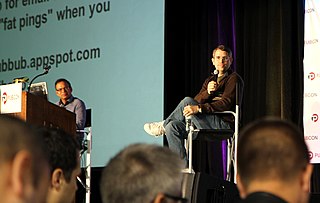A Quote by Rebecca MacKinnon
Google attempted to run a search engine in China, and they ended up giving up.
Related Quotes
Google - and some of the other sites, YouTube and, you know - Google has an amazing search engine. The map product is incredible. So there's a sort of exchange when you put up with a bunch of ads. Facebook basically gives you access to your friends who, in theory, you had access to already. So sometimes I don't really understand the deal, but I guess it makes it slightly easier. So that's their contribution.
I wish that Google would realize its own power in the cause of free speech. The debate has been often held about Google's role in acceding to the Chinese government's demands to censor search results. Google says that it is better to have a hampered internet than no internet at all. I believe that if the Chinese people were threatened with no Google, they might even rise up and demand free speech - free search and links - from their regime. Google lives and profits by free speech and must use its considerable power to become a better guardian of it.
If Google decided at any point to publish my search history, or your search history, or anyone's search history, there's a litany of things they could idea police you about, and if it was published, you would be publicly shamed. Everyone would be publicly shamed. But we trust Google, and we trust the people that run that company.































